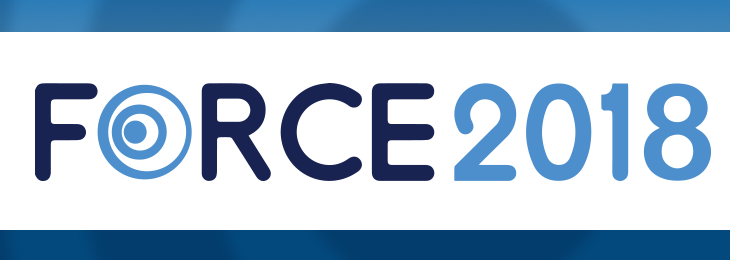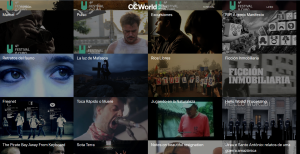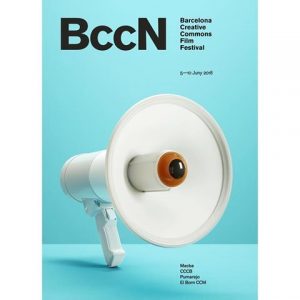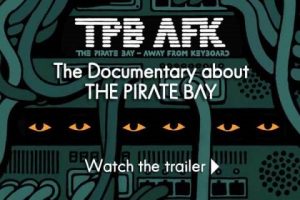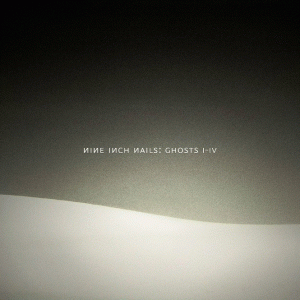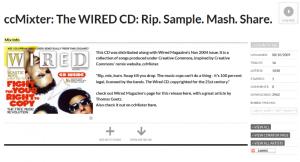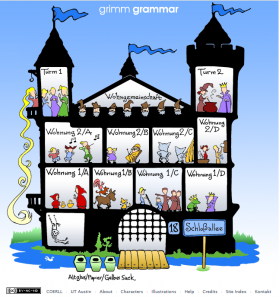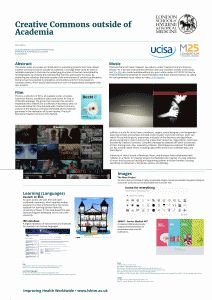Some of the projects found were film festivals, like CCWorld (Media Commons Network), a network of festivals from all over the world, which aims to share, extend and promote audio-visual works that follow openness and free culture criteria, music projects, and catalogues of symbols. Here is an introductory illustration of some of these.
Film
In addition to the film, The Internet’s Own Boy: The Story of Aaron Swartz (2014), shown at last year’s LSHTM Open Access week, there is a collection of films, all available under a Creative Commons licence available to watch and screen for free from CCWorld’s webpage here:
The group that maintain this collection and initiate this network are a collective in Barcelona who run an annual festival for films licensed with Creative Commons, and put at the disposal of anyone interested all the materials generated in the realisation of its own festival, The BccN Barcelona Creative Commons Film Festival.
Included in this collection is a full-length film about Pirate Bay, a file sharing service that infringed copyright by providing links to thousands of songs, films, video games and other material, and helping users download them. The film ‘The Pirate Bay Away From Keyboard’ (2013) was released under a CC BY NC ND licence, and therefore available to share, as long as for non-commercial (NC: Non Commercial) purposes and as long as no modifications were made to the material are distributed (ND: No Derivatives).
Music
Musicians have long utilised Creative Commons licences (which are the same licences encouraged by funders like the Wellcome Trust and UK Councils in relation to research outputs), for instance:
Nine Inch Nails
The band Nine Inch Nails (NIN) released two albums under Creative Commons licences: Ghosts I-IV, a 36 track instrumental collection with only numbers as titles to the tracks and The Slip, which was also made available without any prior notice under a CC BY NC SA licence.
NIN harnessed the potential for experimentation that these licences harbour by calling for user-generated music videos to make a Film Festival to coincide with the music from Ghosts I-IV. The frontman Trent Reznor introduces the project here, and there were extensive submissions responding to this call for experimentation.
ccMixter
ccMixter is a site for music lovers, producers, singers, sound designers and songwriters featuring remixes and samples licensed under Creative Commons licenses. Users are free to download and sample from music on this site and share the results with anyone, anywhere, anytime.
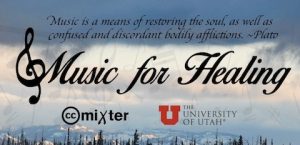 The University of Utah’s School of Medicine, Music and Business collaborated with ccMixter on a “Music for Healing” project that facilitates the creation of a new collection of music that focuses on healing and supporting patients and their families, focusing specifically on Alzheimer’s, Dementia, Autism and Epilepsy.
The University of Utah’s School of Medicine, Music and Business collaborated with ccMixter on a “Music for Healing” project that facilitates the creation of a new collection of music that focuses on healing and supporting patients and their families, focusing specifically on Alzheimer’s, Dementia, Autism and Epilepsy.
Users can search for sounds by genre, instrument and style on the discovery site digccMixter, where everything is also under a Creative Commons licence that makes their reuse free. diggccMixter, which was founded by Creative Commons, compiled a Mixtape to celebrate the tenth anniversary of their sharing tools.
Inspired by ccMixter, Wired Magazine released The WIRED CD: Rip. Sample. Mash. Share. They accompanied this with a great piece that can be read here too.
The Free Music Archive is another fantastic music discovery tool, where searchers can filter by licence types so they know how tracks can be used.
Learning (Languages)
Finally, alongside for profit tools like Duolingo, people can access a wide variety of resources that either are in the public domain, or liberally licenced with Creative Commons licences, to aid their language learning free:
- Deutsch im Blick is an open access site with free and open multimedia resources, which requires neither password nor fees and featuring a free online textbook for learning German from the University of Texas. It is the web-based first-year German program developed and in use at the university.
- The courses of US Foreign Service Institute (FSI), who teach foreign languages to government diplomats and personnel for duties abroad, are in the public domain. Here is the audio and the text for basic German, for example.
- IRIS is a useful is a digital repository of instruments and materials for research into second languages.
FORCE 2018/LSHTM Open Access October
I will present this blog, as a poster, at this year’s FORCE 2018 Conference at McGill University in Montreal, Canada thanks to generous funding from the UCISA bursary scheme 2018. This conference, for which the theme is ‘engagement’, will take place during October, when LSHTM’s Open Access Team will be hosting a series of open access events. Come along to our Creative Commons Workshop showcasing some of these great resources: https://www.eventbrite.co.uk/e/creative-commons-workshop-tickets-50452153750






